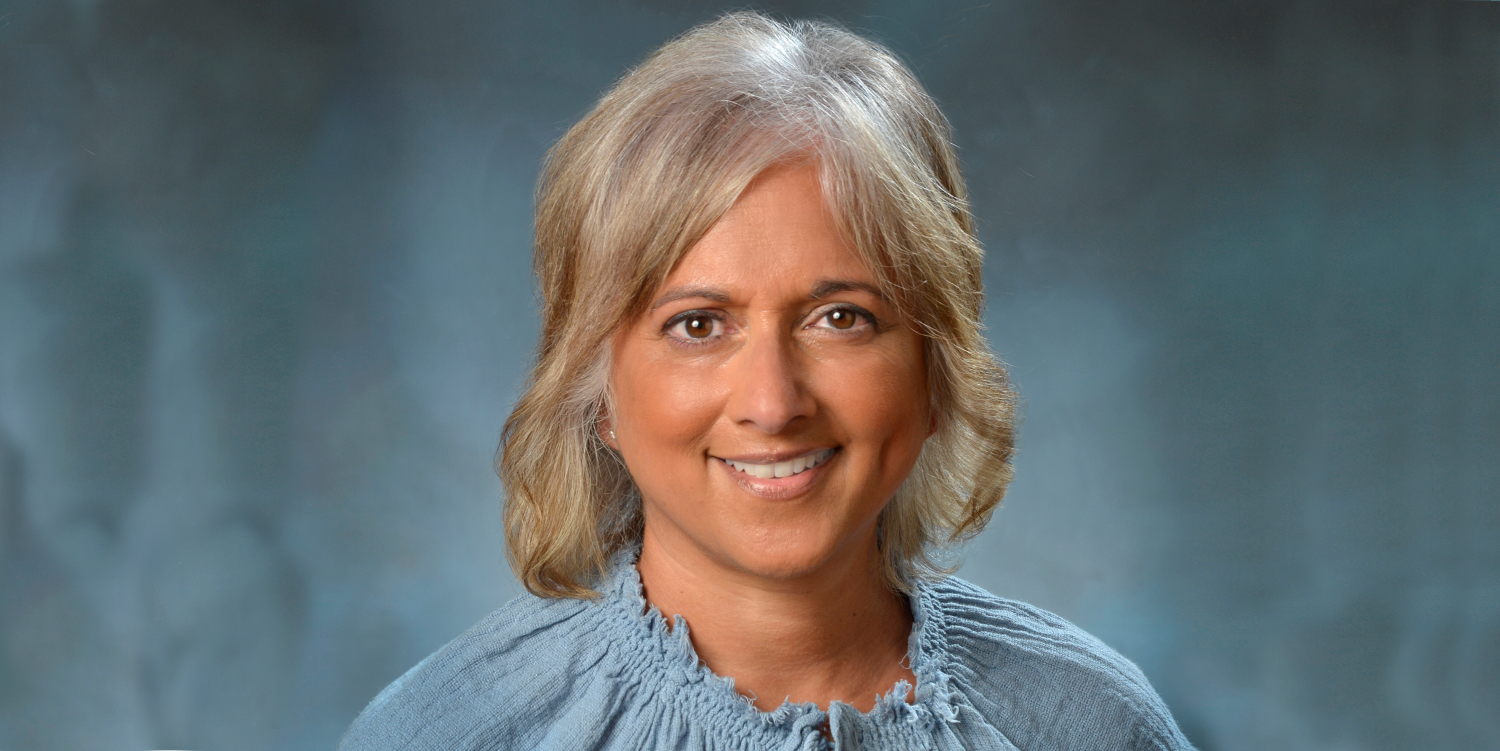Neeta Kumar-Britten, a passionate advocate for citizenship education, has been teaching about democracy in Cape Breton for 30 years.
A vice-principal and grade 4/5 Social Studies teacher at Ferrisview Elementary in North Sydney, Nova Scotia, Kumar-Britten has taught at every grade level over the course of her career. And for the past two years she has been sharing her social studies dedication with pre-service teachers at Cape Breton University as well.
In fact, she’s been teaching civic education long enough that she has had some of the same students twice.
Last year her class of B.Ed teachers included two women she had taught before — one first in Grade 3, the other Grade 12. “They both piped up and said, we remember doing Student Vote with you in high school and elementary. And definitely, they had a solid grasp of our democracy and an impressive depth of understanding,” Kumar-Britten recalls, highlighting the lasting power of that education.
Whether she is organizing a model parliament for Grade 1s, running a debate club, coordinating Student Vote, or creating lessons for her future teachers, Kumar-Britten is driven by her desire to bring the fundamentals of democracy to students of all ages, to “grow great citizens.”
“Whenever I have taught, it’s nuts and bolts,” Kumar-Britten says. “Everybody needs nuts and bolts. Everybody needs the foundation of how this system works.”
As soon as a student can make connections to the real world, all of a sudden, it becomes a really powerful thing.
Neeta Kumar-Britten is being recognized as a CIVIX Ambassador for her deep commitment to promoting civic education, and inspiring active citizenship among generations of youth.
While she is a skilled teacher of democracy’s fundamentals across ages, she has a special talent for making themes relatable to younger audiences. Grade 4 is a particularly effective year for this in Nova Scotia. “You really get to tackle questions of ‘how does our democracy work?’ and ‘how do decisions get made in our country, in our provinces and territories and in our municipalities?’ ” she says.
Kumar-Britten’s approach is issues-first. To examine the differences between levels of government, for example, instruction begins with real and relatable scenarios.
“We often start with conversation about what matters to you, in your life,” she says. “What’s your neighbourhood like? Where do you like to play? Has anybody ever been ill in your family? And then we start to talk about who decides if there’s a problem with any of those things.
“As soon as a student can make connections to the real world, all of a sudden, it becomes a really powerful thing, because then maybe a phone call can be made or an email can be sent or an invitation can be extended to speak to someone who can help them make a difference in some of those issues.”
“My ultimate goal,” she says, “is having students understand that you use these democracy education skills every single minute of every single day.”
When Student Vote launched, Kumar-Britten had been teaching for 10 years, and she was excited to participate in the program when she had the opportunity. “Student Vote brought in everything I thought was important into one place, and made it so easy to bring it into a classroom, I just jumped at it,” she says. “After that, I would not miss one.”
She appreciates that CIVIX programs have kept up with new themes as the world becomes more challenging to navigate: “With people having all these choices to consume information about who is shaping their country, why, and in what ways, our democracy is increasingly complicated.”
“Determining the source of information and its believability, is, I think, becoming as important as learning how to know enough to mark an X in a certain place on the ballot,” she says, referencing CIVIX’s CTRL-F digital media literacy program.
Marking the X, however, is still very important — and powerful — even in a parallel election. “We can all get behind that screen and have a pencil and some privacy and make that choice about who’s going to shape our communities, provinces, our country,” Kumar-Britten says. “That is something that unites us and it is a beautiful thing.”
Teaching these skills is rewarding, and the community provides regular reminders of the impact. “Kids come up to five, 10, 15 years after you’ve worked with them with this programming, and they remember you,” she says. “A youngster came up to me in a grocery store, so excited with their mom, saying, ‘There’s the voting lady!’ To me, there’s nothing better.”
At a Glance
Name: Neeta Kumar-Britten
Location: Sydney, Nova Scotia
Grades Taught: 4-5
Subjects Taught: Social Studies
Years Teaching: 30
Years Involved with CIVIX: 19
CIVIX programs used: Student Vote, Rep Day, Student Budget Consultation, CTRL-F, PoliTalks, Democracy Bootcamp
Key Motivation: “Our need to grow great citizens in an increasingly complex democracy.”
